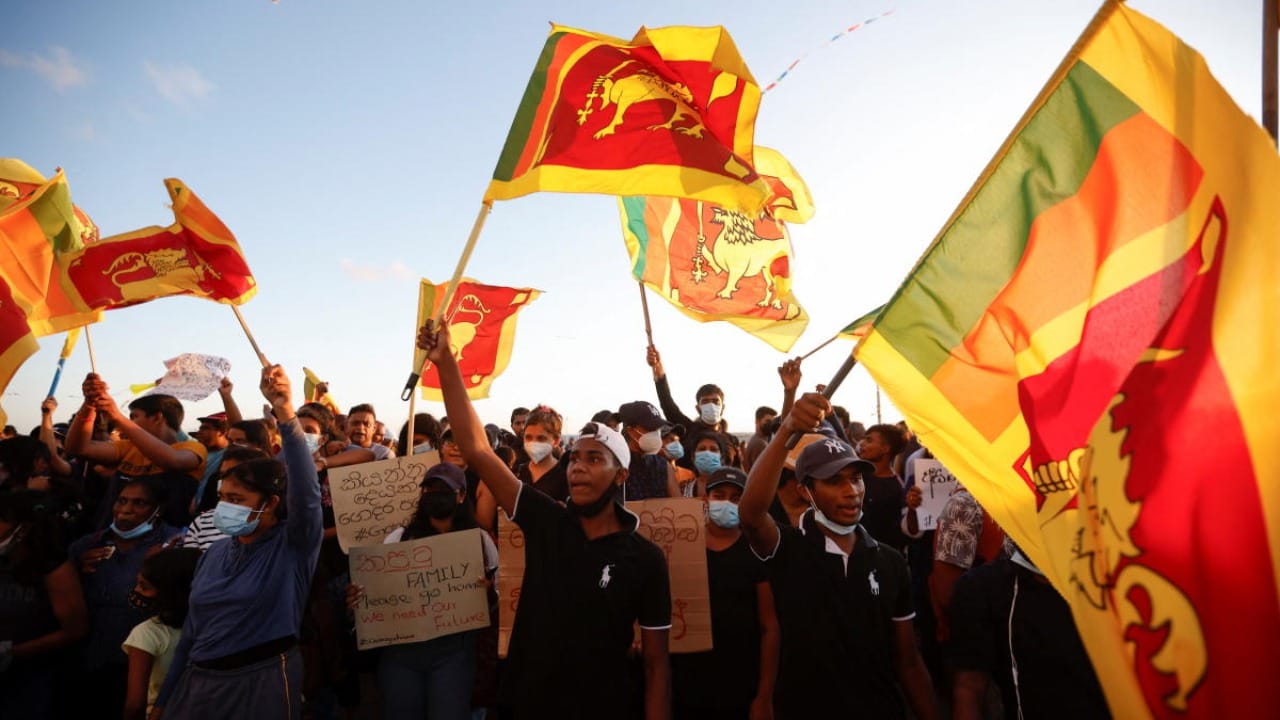Sri Lanka Decides: Balancing Hope and Stability Amid Crisis
The upcoming election is more than a mere political contest; it is a referendum on the direction Sri Lanka will take amid ongoing uncertainty
In the coastal town of Matara, a familiar sight has become unnervingly rare. At Kusum Fernando's small pharmacy, a day can pass without a single customer. "This was never the case before," she laments. Patients who once bought medicines for three days now purchase only for one, unable to afford the full dose. Chandrasiri Wickremeratne, who has run another pharmacy for 30 years, sees fewer customers too. "Some patients with diabetes have stopped buying their medicines because they have no cash," he adds. "They say they might as well die."
This is the grim reality facing millions of Sri Lankans today, as households struggle to recover from five years of economic and political turmoil. The crisis has doubled the ranks of the poor and kept real wages stagnant, pushing many to the brink. Against this backdrop, Sri Lanka is set to elect a new president on September 21, and the stakes have never been higher. The choice is between Ranil Wickremesinghe, the experienced leader credited with stabilizing the economy; Sajith Premadasa, the opposition's voice for change; and Anura Kumara Dissanayake, a figurehead of the left-leaning National People's Power alliance.
Sajith Premadasa: Champion of Change or Gamble on the Untried?
Sajith Premadasa, with his center-left Samagi Jana Balawegaya (SJB) platform, has tapped into the economic discontent permeating every corner of Sri Lanka. His promises to lower VAT, increase social welfare, and soften IMF-linked austerity measures resonate with those hit hardest by the crisis. Premadasa's rhetoric of a new era is compelling, especially to those weary of established elites and desperate for immediate relief.
Yet, his campaign raises questions. Premadasa, while vocal against austerity, has yet to fully articulate how he plans to navigate the complex terrain of international finance and diplomacy. Critics argue that while his intentions may be noble, his lack of experience in global negotiations could pose risks at a time when Sri Lanka's economic future is intricately tied to international partnerships.
Anura Kumara Dissanayake: A Voice from the Left
Anura Kumara Dissanayake, the 55-year-old nominee of the National People's Power (NPP) alliance, presents himself as a break from the past. Drawing support from those disillusioned with traditional politics, Dissanayake's anti-corruption stance and calls for reform appeal to a growing number of active citizens. His platform of reducing presidential powers and reviewing IMF-led reforms has struck a chord with many who see the international lender as the source of their woes.
Yet, his rise also stirs unease among some voters. Dissanayake's history with a party known for its radical positions, and his call for a complete overhaul of Sri Lanka's economic direction, could lead to further instability in a nation still reeling from years of upheaval. Can Sri Lanka afford another experiment at such a critical juncture?
Ranil Wickremesinghe: The Case for Steady Leadership
In stark contrast, Ranil Wickremesinghe offers a more measured path forward. Despite initial skepticism over his ascent to the presidency in the aftermath of the Aragalaya protests, Wickremesinghe has demonstrated a pragmatic approach to the country's complex challenges. Under his leadership, Sri Lanka secured a $3 billion IMF bailout, stabilized inflation, and began rebuilding foreign reserves. The rupee's resurgence and the rebounding tourism sector are testaments to his efforts.
Wickremesinghe's administration has not shied away from tough decisions. From reducing electricity rates to increasing wages and subsidies, he has attempted to address immediate economic grievances while adhering to a broader strategy of fiscal reform. His focus on pragmatic solutions rather than populist promises has earned him both praise and criticism, but it is undeniable that Sri Lanka has made tangible strides under his watch.
As the public scrutinizes his association with past governments, it is crucial to recognize Wickremesinghe's unique position: he is the leader who, despite not being the people's first choice, has taken on the formidable task of steering Sri Lanka out of its most severe crisis in decades.
The Path Ahead: Stability or Change?
The upcoming election is more than a mere political contest; it is a referendum on the direction Sri Lanka will take amid ongoing uncertainty. Voters like Kusum Fernando and Chandrasiri Wickremeratne—who experience the country’s economic pain daily—will be pivotal in deciding whether Sri Lanka gambles on new, untested leadership or opts for a steady hand experienced in navigating crises.
While Premadasa and Dissanayake offer fresh faces and bold rhetoric, Wickremesinghe represents a continuity that could be vital in maintaining the fragile economic recovery. The question remains: Can Sri Lanka afford to risk further upheaval in its pursuit of change, or is now the time to consolidate gains and build a foundation for lasting stability?
In a nation where every day is a struggle, the choice on September 21 is not just about politics; it is about survival, hope, and the future. Whatever the outcome, Sri Lanka stands at a crossroads, and the decision made will reverberate for years to come.






